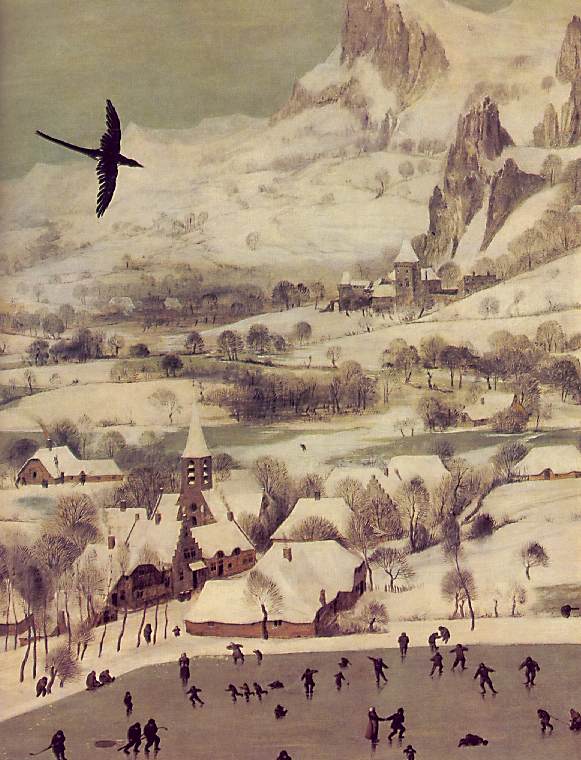|
| Query: bird | Result: 2279th of 32682 | |
Fine Art: Pieter Bruegel: The Hunters in the Snow: Detail of Soaring Bird - huntersb.jpg [00/01]
| Subject: | Fine Art: Pieter Bruegel: The Hunters in the Snow: Detail of Soaring Bird - huntersb.jpg [00/01]
| | Poster: | Walter Michael Sumper (Sumper@Vops2.avl.co.at)
| |

| File size : 76325 bytes
File date : 2000:06:19 13:59:22
Resolution: 581x760
Jpeg process : Baseline
Posted Newsgroups: alt.binaries.pictures.misc
Posted Date: Thu, 24 Apr 97 14:44:45 GMT |
Fine Art: Pieter Bruegel: The Hunters in the Snow: Detail of Soaring Bird - huntersb.jpg [00/01]
BRUEGEL, Pieter
The Hunters in the Snow
DETAIL OF soaring bird
1565
Oil on panel
117 x 162 cm
Kunsthistorisches Museum, Vienna
You can download these pictures and more from
Mark Harden's texas.net Museum of Art
http://lonestar.texas.net/~mharden/
(follow the link to the "Artchive" page)
or from David Fox's Mirror at Ney York University:
http://www.cat.nyu.edu/fox/art/
or from Jeff Aspinall's new Mirror:
www.cat.nyu.edu/fox/art/> size=-2>http://familiar.sph.umich.edu/mirror/>www.cat.nyu.edu/fox/art/
Over 1,700 scans from more than 160 artists.
New scans are added to the archive on a regular basis.
If you don't find the image you are looking for, post a request:
http://lonestar.texas.net/~mharden/request.html
If you are looking for prints of these works, visit Printmaster:
http://www.webgalleries.com/pm
repmus leahcim retlaw
"This is not a bug, it's a feature :-)"
Walter Michael Sumper mailto:sumper@vops2.avl.co.at
|
Comments |
|---|
| | edward |
|
| cool man |
| | edward |
|
| cool man |
^o^
Animal Pictures Archive for smart phones
^o^
|
|
|

